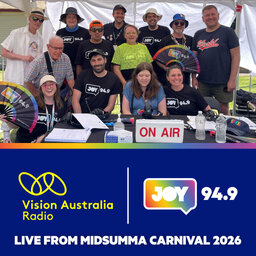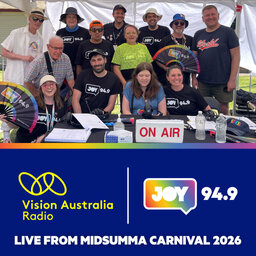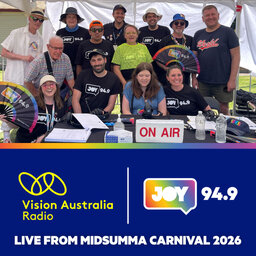Talking Vision: Holman Prize open for submissions
How's about US$25,000 towards your entrepreneurial goal? That’s the amazing cash prize you can win by entering the Holman Prize.
The global opportunity is now open for anyone who is blind or has low vision and has a unique idea to tackle. In this podcast highlight initially aired on Talking Vision, host Stella Glorie speaks to one of three 2021 Holman Prize winners on the opportunity she has been able to plan thanks to the winnings.
Maud Rowell, 25, hopes to travel across Japan independently including visits to rural and remote areas, solely by foot and public transportation to write a book.
In 1 playlist(s)
Interview Highlights from Vision Australia Radio
Vision Australia Radio Interview Highlights shares a range of discussions initially broadcasted on o…Social links
Follow podcast
Recent clips

Midsumma Festival 2026, Carnival Day - Interview with Justin Clausen ‘He’s Every Woman’.
07:26

Midsumma Festival 2026, Carnival Day - Interview with Nilgun Guven, Vitae Veritas
08:15

Midsumma Festival 2026, Carnival Day - Interview with Collins Street Baptist Church & Melbourne Inclusive Church
14:06
 Interview Highlights from Vision Australia Radio
Interview Highlights from Vision Australia Radio